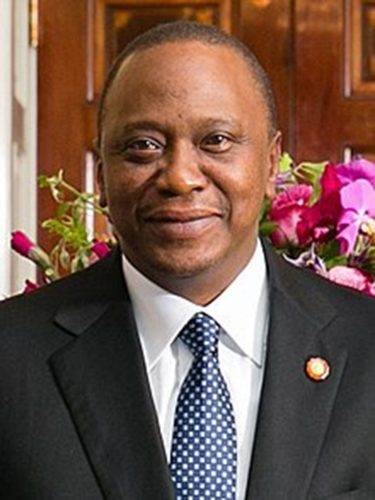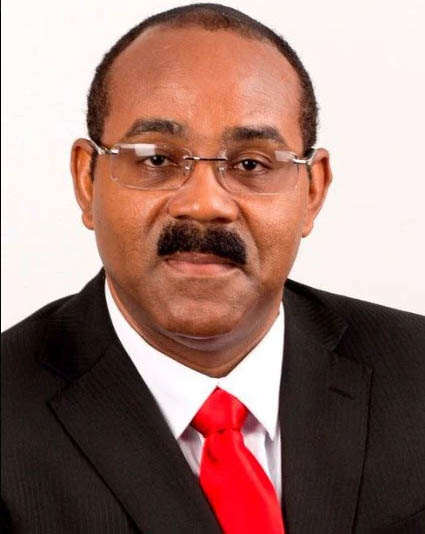African and Caribbean states are being urged to use their 69-nation strong voting bloc to centre their needs and demand change in the international system.
Speaking during the first Africa-Caribbean Community (CARICOM) summit, Community Chair and Prime Minister of Antigua and Barbuda Gaston Browne explained that the establishment of the African Union’s Medical Supplies Platform to secure COVID-19 resources shows that such cooperation is possible.
“We are a population of approximately 1.4 billion people with great natural and wealth creating resources…we are the suppliers of vital commodities to the global community, and a strong market for the goods and services of Europe and North America. Additionally…we have the voting power of 69 nations in the United Nations and all its subsidiaries including the World Trade Organisation. We have global bargaining power but only if we use it effectively,” Browne explained.

He stated that a stark illustration of how major European nations and their North American allies continue to hold Africa and the Caribbean hostage can be seen in the fact that a few nations have control over the production and distribution of COVID-19 vaccines to the detriment of developing countries in two regions.
According to Browne, while 70% of the European Union and 60% of North America are vaccinated, only 3% of the African population is. The vaccination rate in Latin America and the Caribbean, according to the Pan American Health Organisation, is approximately 25%.
“This pattern of inequity is obvious and we must act together to change it. We must establish structures of cooperation to promote our mutual socio-economic interest, increase investment and trade and people to people exchanges between Africa and the Caribbean. Resist being pushed to the margins of global decision making and collaborate on decisions to restructure global financial architecture, global taxation, derisking and the blue economy,” he advised.
The summit, which was hosted by Kenya under the theme “Unity across continents and oceans: opportunities for deepening integration,” was intended to strengthen the cords of unity already existing in order to create just such structures.
Kenyan President Uhuru Kenyatta, reminded that the Pan-African movement built the foundation of a rich African and Caribbean relationship and expressed the hope that this will be the first baby step in that direction.
“Let us seize the moment to harness this unique relationship into a powerful social, economic, cultural and political force,” he advised while noting that areas ripe for cooperation include the blue economy, financial technology, debt financing and COVID19.
A joint response to the pandemic and recovery was a theme echoed by several speakers.
CARICOM Secretary General Carla Barnett encouraged the countries to use links previously established through periodic visits to create lasting mechanisms to bring together the strength of the two regions to elicit results for their people.
“The recent experiences with respect to the acquisition and distribution of vaccines to stop a global pandemic, must serve as an impetus to drive this relationship forward,” she stressed.
Common messages
Guyana’s President Irfaan Ali, meanwhile, was specific in his request that the summit agree on a joint position on the COVID-19 pandemic, its recovery and several other issues including food security.
“This historic meeting occurs on the eve of two critical global events. The UN General Assembly and COP 26. It is therefore an opportune time for us to determine some common ideas and messages which we wish to convey to the global community…I am… of the view that this forged collaboration must address the COVID-19 pandemic and recovery, climate change, mitigation, and adaptation measures, food security; and the cost of commodities and transportation,” he said during his presentation.
According to Ali, the regions must have a forceful message on issues relating to rescheduling of loans, debt financing, access to capital in rebuilding efforts, and an evaluation of the global vaccination system along with its failure to respond to the most vulnerable in the world.
“Our region suffered immensely from the fallout in the rising cost of commodities and transportation services during the pandemic. We must, therefore, address these issues through a common theme as we, the developing economies, would find it even more difficult to cope with and rebuild post-COVID,” he reminded.
Ali stressed that the global community must be advised that achieving the Sustainable Development Goals as outlined in agenda 2030 is severely threatened.
“Guyana looks forward to a sustained and strengthened relationship between the Caribbean and Africa. We pledge our wholehearted support to ensuring the success of this endeavor… Economic integration must be driven by people, technology, policies, and partnership aimed at one objective, the prosperity of both our peoples,” he concluded.
Browne, meanwhile, has recommended that a Forum of African and Caribbean Territories and States be created and that visa requirements be removed from Africans and Caribbean citizens wishing to visit the other region.





